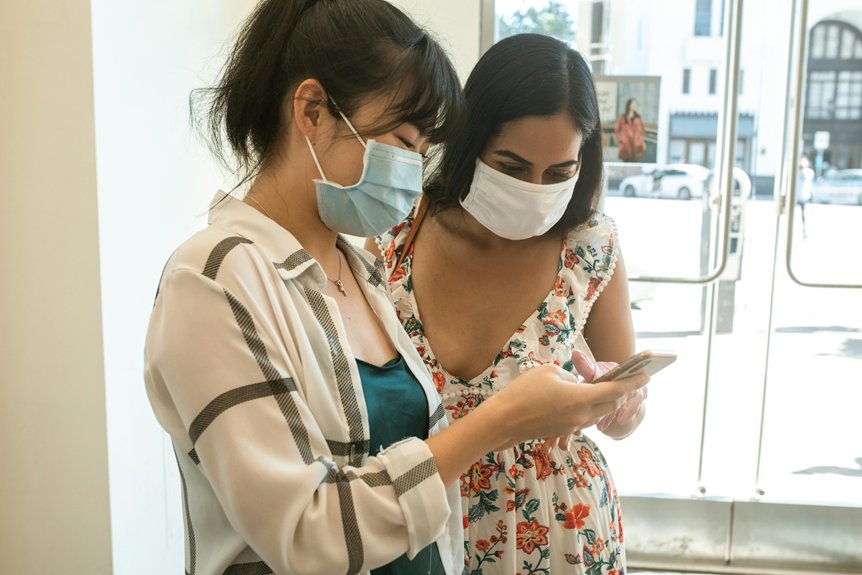In South Fulton, GA, your digital life can markedly impact your mental health, but you don’t have to face these challenges alone. Setting boundaries online, recognizing harmful behaviors like cyberbullying, and practicing mindful screen use can help protect your well-being. Together, we can explore practical ways to foster safe, supportive digital environments—because your mental health deserves to be prioritized in every interaction. Let’s look at how you can create healthier online experiences.
Understanding the Impact of Digital Spaces on Mental Well-Being
Digital spaces have become an integral part of our daily lives, shaping how we connect, share, and find support. While these online environments offer valuable opportunities for connection, they can also impact your mental well-being.
Spending too much time scrolling or comparing yourself to others may lead to feelings of loneliness, anxiety, or low self-esteem. It’s important to be mindful of how digital interactions affect your mood and thoughts.
By setting boundaries, taking breaks, and focusing on positive online experiences, you can protect your mental health and foster a healthier relationship with digital spaces.
Recognizing Signs of Cyberbullying and Online Harassment
As you become more aware of how online spaces influence your mental well-being, it’s important to recognize when those interactions turn harmful. Signs of cyberbullying and harassment can include receiving mean or threatening messages, feeling anxious or upset after using social media, or noticing others spreading false information about you.
You might also withdraw from online activities or feel unsafe when browsing. Remember, you’re not alone, and these feelings are valid. Recognizing these signs early helps you take steps to protect yourself and seek support.
Understanding the importance of a digital image as a business asset can also help you build a positive online presence that reflects your true self. Trust your instincts, and don’t hesitate to reach out to someone you trust for help.
Strategies for Managing Digital Stress and Screen Time
Managing screen time and digital stress is essential for maintaining your mental health in today’s connected world. You might feel overwhelmed by constant notifications or the pressure to stay always available.
To manage this, set clear boundaries, like designated tech-free times or areas in your home. Practice mindfulness or deep breathing when feeling stressed, and take regular breaks from screens to recharge.
Remember, it’s okay to disconnect and prioritize your well-being. Small, consistent steps can reduce digital overload and help you feel more balanced and in control.
Your mental health benefits when you create healthy digital habits tailored to your needs.
Promoting Positive and Supportive Online Communities
Creating positive and supportive online communities is essential for fostering mental well-being in today’s connected world. When you contribute kindness and understanding, you help create spaces where others feel safe and valued.
Encourage respectful conversations and celebrate diverse perspectives, knowing they strengthen community bonds. If you encounter negativity, choose to respond with empathy or step away, protecting your mental health.
Remember, your actions can inspire others to foster a caring environment. By promoting positivity and support, you not only improve your digital interactions but also help build a healthier online space for everyone.
Together, your efforts can make a meaningful difference.
Tools and Resources for Protecting Privacy and Personal Information
Protecting your privacy online is essential in today’s digital landscape, and there are many tools designed to help you do just that. Password managers make creating and storing strong, unique passwords easy, reducing the risk of hacking.
VPNs encrypt your internet connection, safeguarding your data on public Wi-Fi. Privacy settings on social media allow you to control who sees your information. Antivirus software protects against malicious threats, and two-factor authentication adds an extra layer of security.
Encouraging Healthy Digital Habits Among Youth and Adults
Building healthy digital habits is essential for both youth and adults as they navigate an increasingly connected world. You can start by setting boundaries around screen time, ensuring you’re not overwhelmed or isolated.
Encourage mindful use by taking regular breaks and practicing digital detoxes when needed. Foster open conversations about online experiences, emphasizing respect and empathy.
Remember, it’s okay to seek help if digital habits start affecting your mental health. Small, consistent steps make a difference.
Connecting to Local Support Services and Mental Health Resources
Have you considered how connecting with local support services can make a real difference in your mental health journey? Reaching out to nearby clinics, counselors, or support groups provides you with tailored resources and a sense of community.
These services are here to listen, guide, and help you navigate challenges safely and confidentially. Knowing you’re not alone can be comforting, and local providers understand the specific needs of South Fulton residents.
Taking that first step might feel difficult, but it’s a powerful move toward better mental health and digital safety. Remember, support is available—you’re not alone in this.
Educating Families and Schools on Safe Digital Practices
Since digital technology is a central part of daily life, it’s crucial to educate families and schools on safe digital practices to keep young people secure online. You can help by setting clear boundaries, like time limits and privacy settings, and encouraging open conversations about online experiences.
Teach children to recognize potential risks, such as cyberbullying or sharing personal information, and reassure them that they can come to you with concerns. Providing guidance and fostering trust creates a safer digital environment, helping youth develop healthy habits and confidence in *navigating* the online world confidently and securely.
Conclusion
Remember, creating a safe digital space is a shared effort. By setting boundaries, staying vigilant against cyberbullying, and practicing mindful online habits, you can protect your mental health and support others. Use available tools and resources, and don’t hesitate to seek help if you’re feeling overwhelmed. Together, we can foster a respectful, inclusive online community that promotes well-being for everyone in South Fulton. Your digital health truly matters. For more information on how to improve your web design and SEO for your practice, visit us online at Doctors of Digital Marketing.

